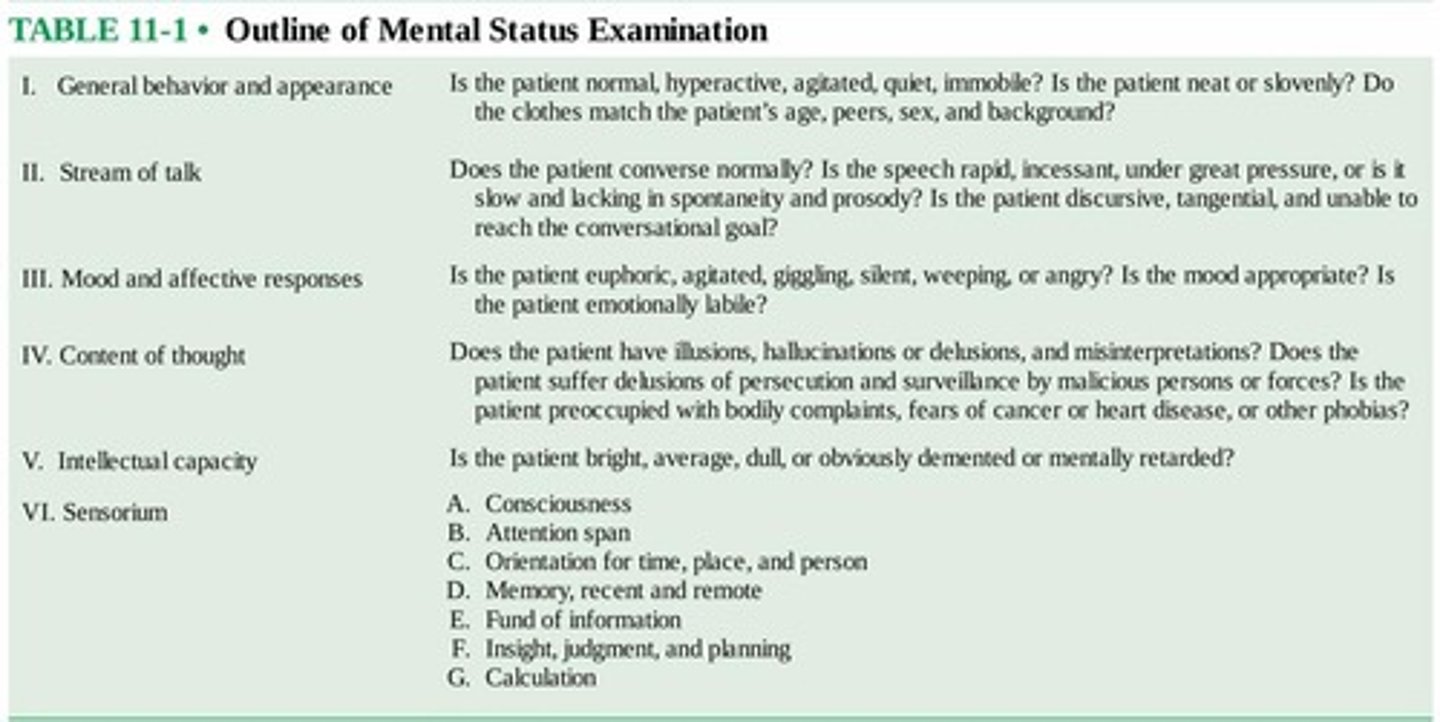Mental Status Examination in Neuroscience
1/24
There's no tags or description
Looks like no tags are added yet.
Name | Mastery | Learn | Test | Matching | Spaced |
|---|
No study sessions yet.
25 Terms
Mood
Underlying emotional tone of patient's responses.
Affective Response
Physical expression of emotions matching situations.
Movement and Behavior
Observation of gait, posture, and coordination.
Appearance
Overall look, grooming, and stability of patient.
Emotional Labile
Rapid changes in emotional state.
Stream of Talk
Patient's speech volume, speed, and clarity.
Content of Thought
Themes and beliefs occupying a person's mind.
Consciousness
State of awareness of self and environment.
Wakefulness
Arousal level of the patient.
Awareness
Content of consciousness regarding reality.
Hallucinations
False sensory perceptions without external stimuli.
Delusions
Fixed false beliefs resistant to reasoning.
Paranoia
Excessive or irrational suspicion of others.
Obsessions
Persistent intrusive thoughts.
Phobias
Irrational fears affecting behavior.
Intellectual Capacity
Ability to process, store, and apply information.
Cognitive Impairments
Decline in mental functions due to diseases.
General Intelligence
Overall cognitive ability and reasoning skills.
Problem-Solving Skills
Ability to find solutions to challenges.
Memory
Capacity to recall information and experiences.
Neurodegenerative Diseases
Conditions causing progressive cognitive decline.
Assessment Questions
Questions to evaluate cognitive and emotional states.

Normal Patient
Displays appropriate emotional responses and behavior.
Signs of Distress
Indicators of anxiety, frustration, or emotional pain.
Treatment Plan Development
Creating strategies based on mental health evaluation.